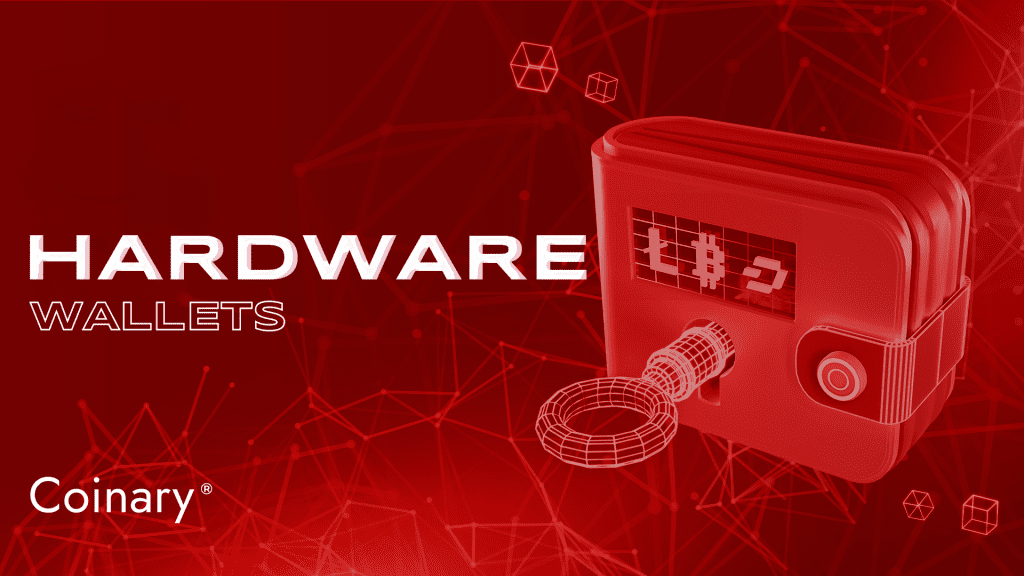More and more people are starting to interact with a blockchain service. Some people choose to use a web3 wallet custodial service, which means that they don’t have to worry about their private keys. But what if you want greater security and control over the digital assets you own? You must use a non-custodial service that allows you to keep your access to those assets offline so that you can take them anywhere and use them again at any time. This is where a hardware wallet would be useful.
The hardware wallet is that next step on the path of any crypto enthusiast. Perfect for hodling any type of cryptocurrency, even can store the NFTs you buy. But what are they exactly?
What is a Hardware Wallet?
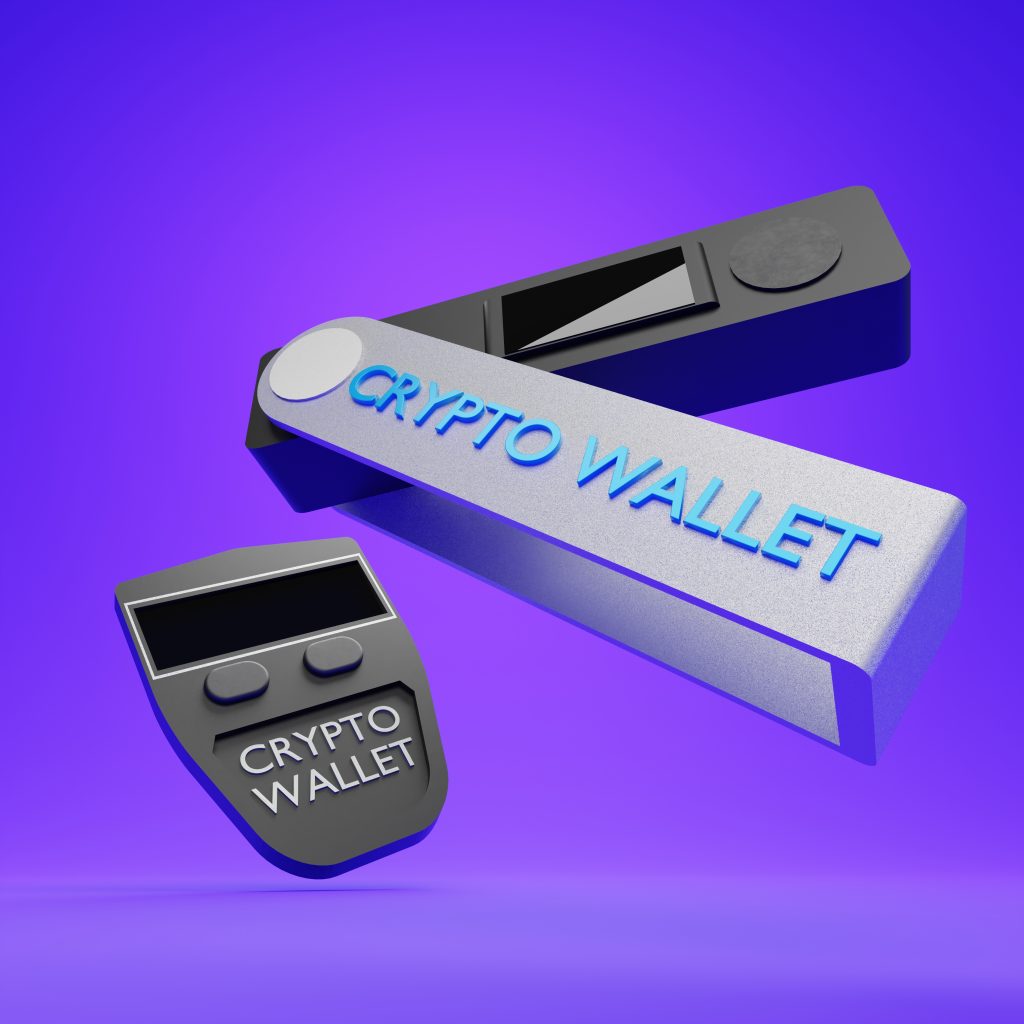

The security of your funds should not be taken lightly, and that is the purpose of hardware wallets. These wallets are physical devices that offer the highest security standards for cryptocurrencies. They operate without an internet connection and carry their private security keys at all times, making them unique.
Hardware wallets are a type of non-custodial wallet, but they handle assets differently than wallets like Metamask. They provide storage conditions as one of the various types of cold wallets available, making them the most reliable and secure option.
It is essential to understand that hardware wallets do not remove your assets from the blockchain, as your assets always remain there in some form.
Hardware wallets act as non-custodial services, removing the private key from any online registry and ensuring that there is no other access to the private key. This private key, which unlocks your address on the blockchain where your assets are stored, should be kept confidential. We do not recommend storing seed words in Google Drive or other cloud storage, as it leaves a door wide open for unauthorized access.
How Does a Hardware Wallet Work?
There are many models available, and we will discuss which are the best ones on the market today, but overall, they all point to the same concept: security.
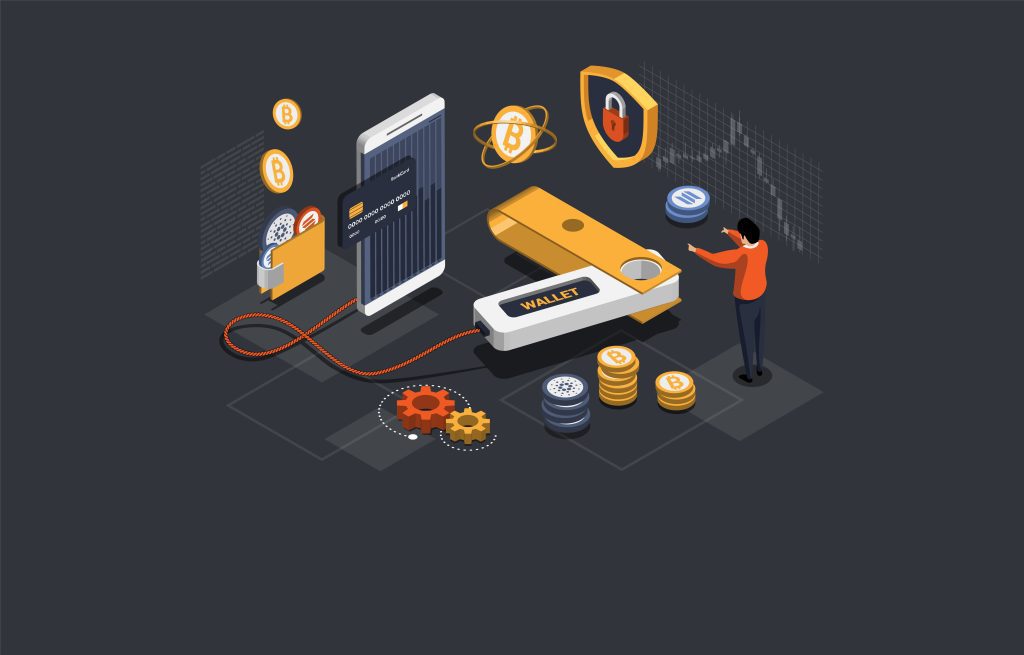

The fight is also about attracting users by making things easier to use, having backup options that are immune to viruses, or better accessibility. These things are great for everyone, but there is one downside: they have an up front cost. Nevertheless, it certainly makes sense given the amount of work involved in bringing a high-tech device to market. If the device were to be used to store a large amount of crypto assets, any user would expect the hardware wallet to meet these high security requirements. In short, they are for hodlers the best invention of the 21st century. Their key features include:
- Small and portable design, allowing you to carry them anywhere or keep them in a safe location.
- They usually have a screen that allows you to verify what you are authorizing before you sign.
- Private keys protected by a PIN and an optional passphrase when stored on the wallet.
- You can manage your cryptocurrencies by connecting them to a computer or smartphone through a USB port.
- When you disconnect the wallet, it will automatically be shut down.
- The keys are never exposed to the internet; therefore, no one can steal them.
- The level of security these devices offer is extremely high and reliable.
Why Are Private Keys Important?
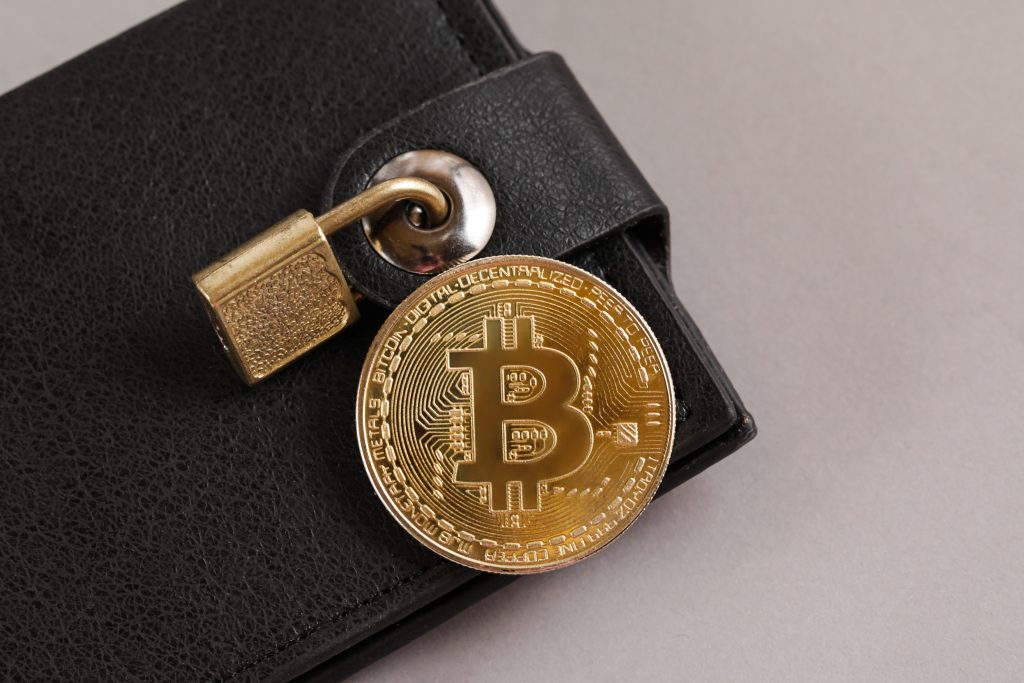

Private keys are crucial for accessing, receiving, and sending cryptocurrency in a trustless manner, where a third party is not required to verify transactions. These long, alphanumeric codes provide final ownership and control over your cryptocurrency.
A main job of hardware wallets is to keep your private keys away from the internet. This in order to mitigate the risk of compromising your assets from an online attack. In this way, the private key never leaves the device for a second.
Trustlessness, a core component of blockchain technology, aims to reduce the level of trust participants must place in individuals, organizations, and even governments while ensuring that no single bad actor can compromise the system.
The second crucial function for the interaction with the crypto sphere is to be able to sign and confirm transactions on the blockchain. This signature is the one that proves the ownership of those assets but, more importantly, of the private key. It is impossible to force that signature without the key, and the companies that create them take great care of that. This means that no one else would execute a transaction on your behalf besides you.
Holding your private keys means that you alone control your finances, and no single person or group can tamper with transactions or seize control.
How to Use a Hardware Wallet?
Using a hardware wallet may seem daunting initially, but the process is designed to be accessible to users of all levels. The steps involved in using a hardware wallet are straightforward, and following them ensures that your assets are stored securely. Here is a step-by-step guide on how to use a hardware wallet:
- Purchase a reputable hardware wallet from a trusted source.
- Unbox the wallet and follow the manufacturer’s instructions for setup.
- Set up a PIN and an optional passphrase for added security.
- Write down the recovery seed provided during setup and store it securely offline.
- Connect the wallet to a computer or smartphone using the provided USB cable.
- Install the wallet’s companion software or app, if required.
- Use the software or app to manage your cryptocurrencies and perform transactions.
- Always verify transactions on the wallet’s screen before signing.
- Disconnect the wallet when not in use, and store it in a safe location.
By following these steps, you can effectively manage your cryptocurrencies while maintaining a high level of security. Remember to keep your private keys and recovery seed confidential and stored offline to protect your assets from unauthorized access.
Benefits of a Hardware Wallet
Hardware wallets offer several advantages over other types of cryptocurrency wallets, making them an excellent choice for anyone serious about securing their digital assets. Some key benefits include:
- Enhanced Security: Hardware wallets provide the highest level of security by keeping your private keys offline, away from potential hackers.
- Easy to Use: Despite their technical nature, hardware wallets are designed to be user-friendly, with clear instructions and user interfaces.
- Portability: Most hardware wallets are small and lightweight, allowing you to carry them with you or store them securely in a safe place.
- Recovery Options: Hardware wallets often come with recovery seeds, allowing you to restore your assets in case of loss, damage, or theft of the wallet.
- Multiple Cryptocurrency Support: Many hardware wallets support a wide range of cryptocurrencies, enabling you to manage all your digital assets in one place.
- Trustless Transactions: By holding your private keys, hardware wallets allow you to perform transactions without relying on third parties, upholding the principle of trustlessness.
- Peace of Mind: Knowing that your assets are stored securely in a hardware wallet can give you peace of mind and confidence in your investment.
Disadvantages of a Hardware Wallet
While hardware wallets offer many benefits, they also come with certain disadvantages that are important to consider before deciding to use one. These drawbacks, however, should be weighed against the advantages provided by these wallets, especially in terms of security. Below is a list of some common disadvantages associated with hardware wallets:
- Upfront Cost: Hardware wallets can be expensive, especially when compared to free or low-cost software wallets.
- Limited Accessibility: Access to your funds requires the physical wallet, which might be inconvenient if you need to perform transactions frequently or on-the-go.
- Device Loss or Damage: Losing or damaging the hardware wallet could result in temporary inaccessibility to your funds, although recovery seeds can help in restoring your assets.
- Compatibility Issues: Some hardware wallets may not be compatible with all cryptocurrencies or wallet software, potentially limiting your options.
- Learning Curve: Users who are new to cryptocurrency may find hardware wallets more complex and harder to use than simpler alternatives like software wallets.
Despite these disadvantages, the security benefits provided by hardware wallets often outweigh the drawbacks for users who prioritize safeguarding their digital assets.
Which hardware wallets should you use?
It’s time for you to open your wallet and invest in your virtual wallet… ironic, right?
As we have already mentioned, they are easy-to-use devices that take the form of a USB portable hard drive. Most of them have a common goal, and therefore we find similar features in each of them. You must keep in mind that the main difference between them will then be the assets they allow you to store, or, what is the same, the standards they decide to work with. This is a known issue with all types of wallets, including Metamask. In the case of Metamask, it will only accept tokens based on the Ethereum network. Along those lines, the first thing you should look into is whether or not the hardware wallet you want to buy supports the digital assets you intend to protect.
It is now time to introduce what we consider the two best hardware wallets. They offer what they promise and more.
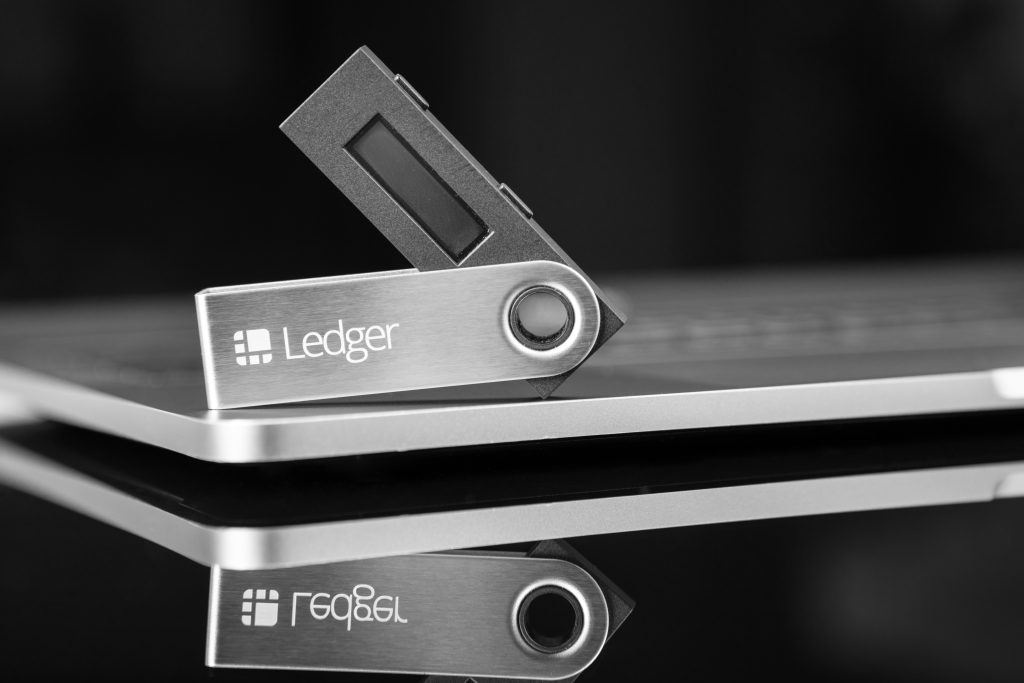

Ledger
The company’s goal is to create secure solutions for blockchain applications. It is also feature-rich and suitable for both novice and advanced cryptocurrency traders. The ledger it’s remarkable for storing, trading, and transferring large amounts of Bitcoin, Ethereum, and Litecoin.
- Ledger Nano S: This compact and affordable wallet offers strong security features and supports a wide range of cryptocurrencies.
- Ledger Nano X: As an upgraded version of the Nano S, the Nano X comes with additional features like Bluetooth connectivity and a larger screen.
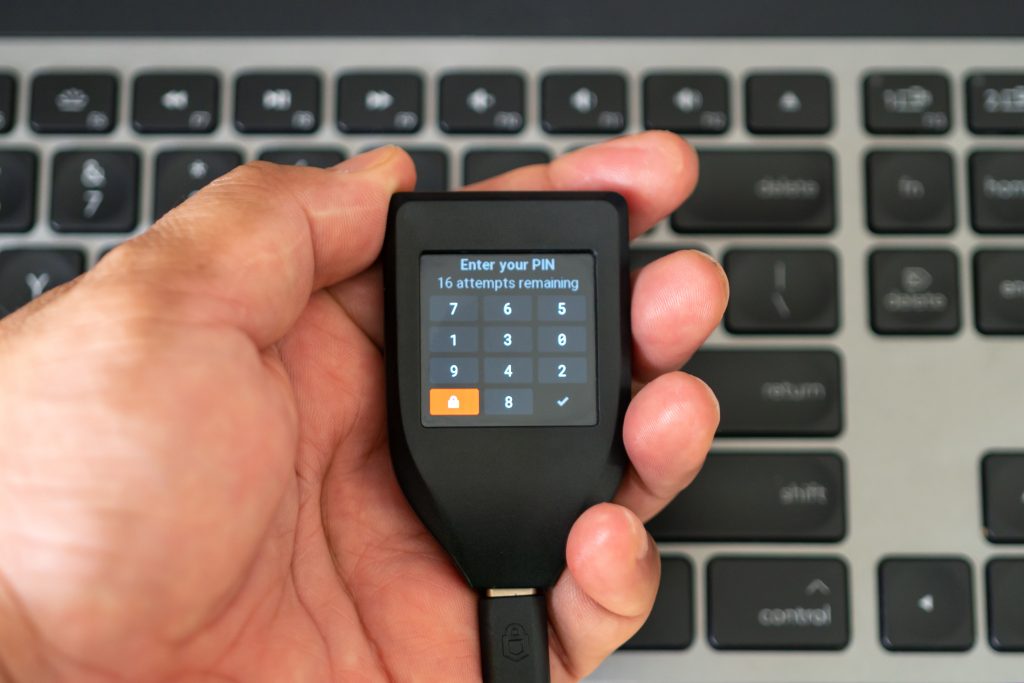

Trezor
Developed by SatoshiLabs, it is the first physical wallets to arrive in the crypto sphere. You can manage easily your NFTs with Trezor. The seed words will enter on the device itself, so there is no risk of someone stealing the seed words.
- Trezor Model One: This reliable and user-friendly wallet supports numerous cryptocurrencies and offers robust security.
- Trezor Model T: The premium version of the Trezor wallet, the Model T features a touchscreen interface, additional coin support, and enhanced security features.
It appears that no one would do otherwise, but remember that if you are going to buy a hardware wallet, be sure to buy it from its official suppliers and not from markets or third parties. These crypto hardware wallets are highly secure, and the final choice will depend on user’s preferences.
Final Thoughts – Do You Need a Hardware Wallet?
It is because of human errors that the maximum supply of bitcoin has decreased (well not exactly but we can assume as it was). Due to Big losses from big accounts owned by people who bought and then forgot about their investment or, worse, lost their private key.
There are people who are willing to pay millions of dollars in order to hack into a ledger with an immeasurable number of bitcoin locked inside. But what’s interesting is that all the hardware wallets have reached consensus: if you try and fail more than a few times, the device will self-destruct by wiping all contents, meaning that you would permanently lose your tokens.
That is why it is imperative for us to remind you that if you lose your seed phrase and your private key, you will have to say goodbye to your funds forever. Since there is no place on earth that has a backup nor copy of it, it is impossible to recover your account. Please be extra careful.


